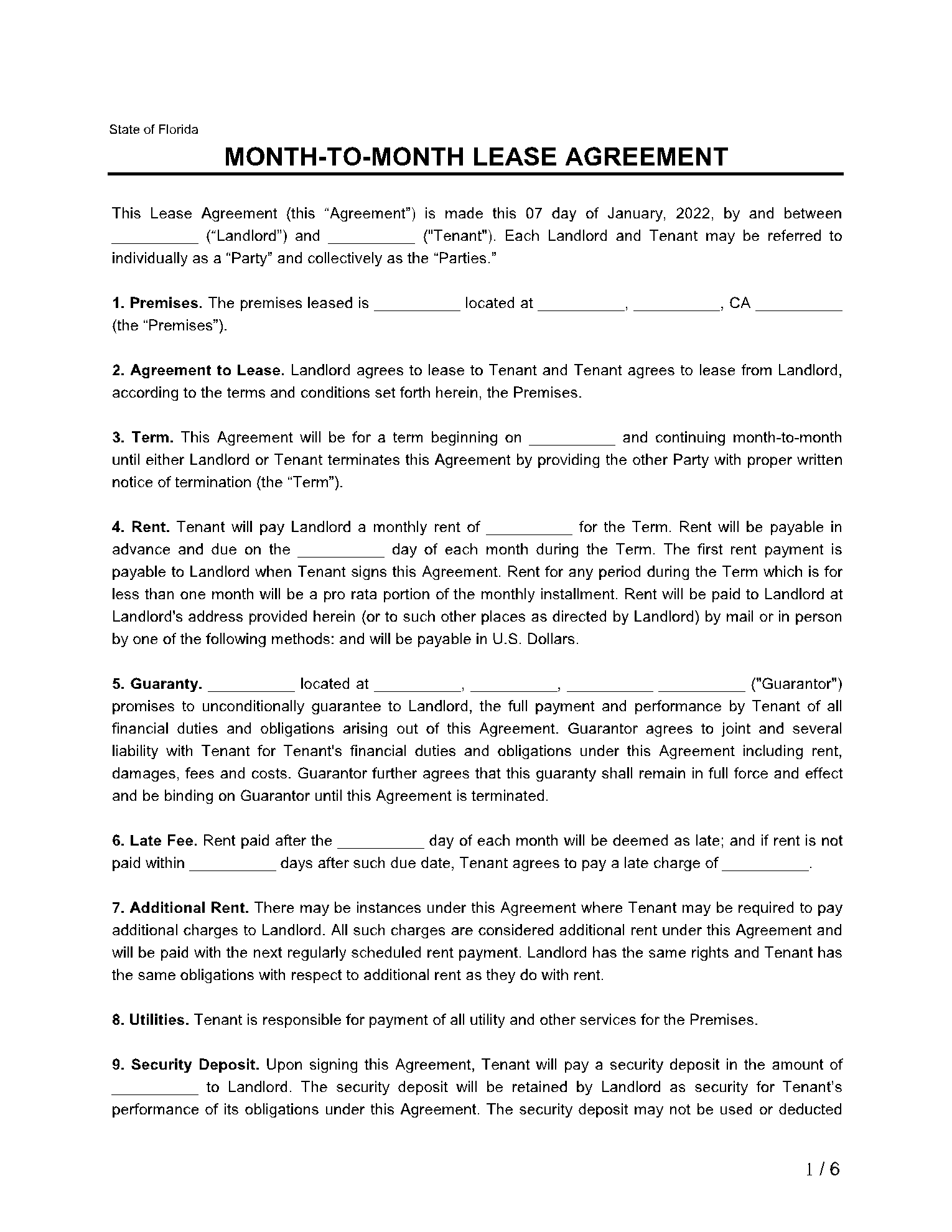In the United States of America, there are several laws on property lease varying from state to state. In the state of Florida, a person must enter a residential lease or month-to-month lease agreement while renting a property.
It is done by a mutual agreement between both parties on a legal document.
What is a Month-to-Month Lease in Florida?
Florida residential lease agreement or month-to-month rental agreement is the legal agreement done between the landlord and the tenant where the lease of the property shall be on a monthly basis.
Every thirty days both parties can review and agree to continue with this or terminate the contract. The landlord would charge a fee as a security deposit which could be a month's rent.
However, the landlord should verify the tenant's financial background to assess whether the tenant would be able to clear monthly rents. Florida month-to-month lease is very popular due to the high percentage of tenancy compared to other states.
In case of termination of this agreement, both parties are liable by law to give written notice of 30 days with the intention to terminate the contract. The notice could be given at any time without considering the date of commencement.
How to Write a Month-to-Month Lease Agreement in Florida?
Once both landlord and tenant agree to Florida month-to-month lease, a legal document shall be signed by both. In the lease agreement paper, the type of agreement must be mentioned.
Also at the same time, the landlord can issue certain terms and conditions the tenant has to obey. The residential lease or month-to-month lease agreement paper could be found in various places.
Both owner and tenant must sign the paper to make a binding contract. In the case of an unfulfilled contract, the same can be furnished in a court of law for legal closure.
What are the Things to Include in the Florida Month-to-Month Rental Agreement?
To make the lease agreement paper legal for a Florida month-to-month lease below information should be mentioned.
- Name of the Owner and the Tenant (Tenant might have to mention the names of all adult members who will be staying in the property)
- Property description
- Monthly Rmrent & due dates (Late payment charges could be mentioned too if applicable)
- Modes of rent payment
- Security deposit amount
- Amenities and facilities available on the property
- Rules & Regulations
- Maintenance Cost
- Refund Clause
Apart from the above, both parties can include other information as well per their discretion. In the case of a contract violation, this document is very important and will be scrutinised thoroughly.
Conclusion
The state of Florida has a very loose Tenant law including Florida month-to-month lease which mostly helps the owners lease their properties easily. Both parties stay happy.
But the downside to this loose law is, there are no specific steps mentioned for the owner to follow in case of a violation of the contract.
So the owners should be a bit careful and do proper background checks before agreeing to a residential lease or month-to-month lease agreement. It will help in case any legal course of action is required.
